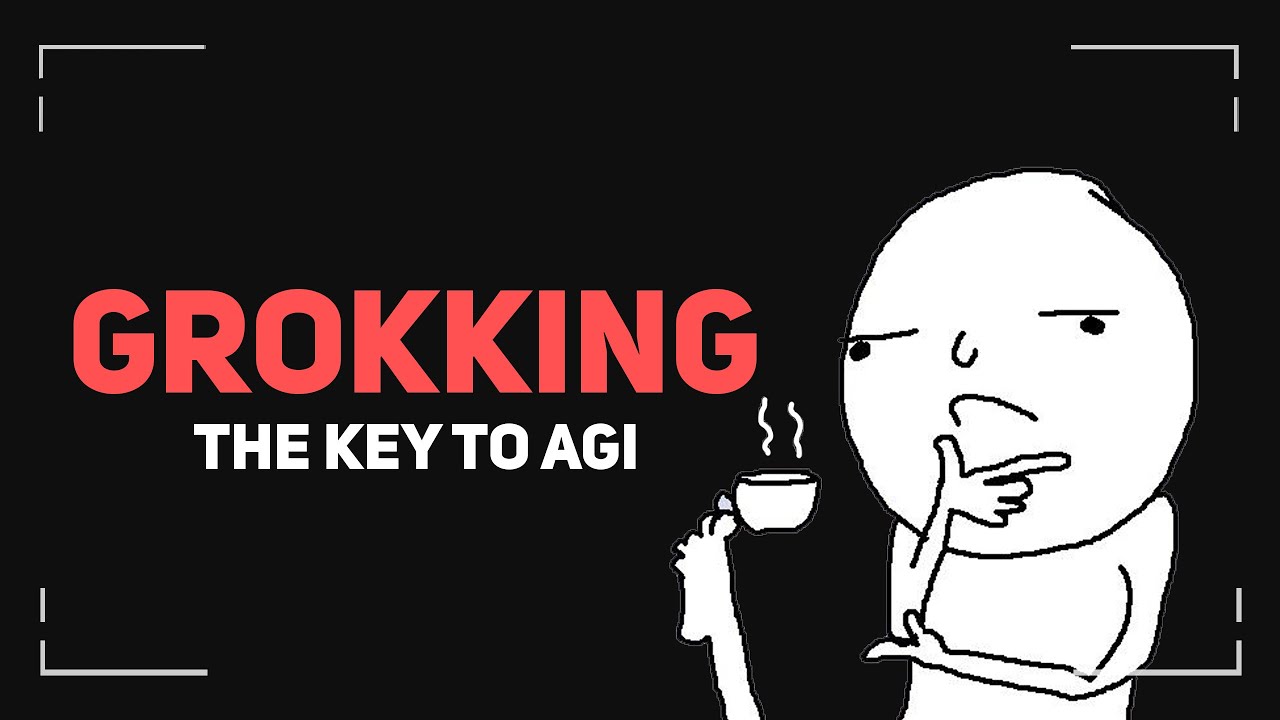The video explores the limitations of current language models in generalization and reasoning, highlighting the concept of “grokking,” which refers to improved performance through extended training beyond overfitting. It suggests that grokking could enhance AI’s reasoning capabilities, contrasting it with existing methods like chain of thoughts, and introduces recent research aimed at accelerating the grokking process to advance towards artificial general intelligence (AGI).
The video discusses the limitations of current language models (LMs) and their performance on benchmarks, highlighting a significant issue with generalization and reasoning capabilities. It points out that in one major benchmark, MML, a staggering 57% of questions in the virology subset contain errors, demonstrating that these models often memorize answers rather than truly understand and reason. Additionally, reordering questions can drastically reduce model performance, with some models experiencing up to a 26% drop in accuracy. This raises concerns about the flexibility and reasoning skills of LMs, suggesting that they may not be effectively learning to generalize from their training data. Are We Done With MMLU? Paper
The video also introduces the concept of “grocking,” which refers to a phenomenon where extending training beyond the point of overfitting can lead to improved generalization capabilities. Grocking was first observed in 2021 and is characterized by a significant performance improvement after a prolonged period of stagnation in validation performance. The term itself comes from the book “Stranger in a Strange Land” and signifies a profound understanding. The video suggests that grocking could be key to enhancing the reasoning capabilities of AI models, particularly in comparison to conventional approaches that rely on verbalizing reasoning steps.
In discussing the challenges faced by LMs, the video references the “Alice in Wonderland” paper, which reveals that models struggle with compositional reasoning, such as combining facts to derive new information. The research found that while models can achieve some degree of generalization in comparison tasks, they fail to perform well on tasks requiring the chaining of different facts together. This limitation is attributed to the architecture of vanilla Transformers, which inhibits their ability to apply learned knowledge to novel combinations of facts. Alice in Wonderland Paper
The potential for improving reasoning and generalization capabilities through grocking is contrasted with existing methods like chain of thoughts, which involve models verbalizing their reasoning. While these methods can enhance task performance, they do not address the underlying issue of how models acquire core capabilities during pre-training. The video suggests that implicit reasoning—an innate ability to discern and organize information without explicit verbalization—is crucial for effective generalization and reasoning in AI systems. Grokked Transformers are Implicit Reasoners Paper
Finally, the video introduces recent research that aims to accelerate the grocking process, significantly reducing the computational resources required. The “grok fast” paper proposes a method to amplify the slow-varying components of gradient updates, achieving a speed-up of up to 50 times. This advancement offers hope for improving AI’s reasoning and generalization capabilities, potentially bringing us closer to achieving artificial general intelligence (AGI). The video concludes with a satirical note about the implications of AI advancements on the job market and encourages viewers to stay informed through newsletters and other resources. Grokfast Paper Grokfast Code
